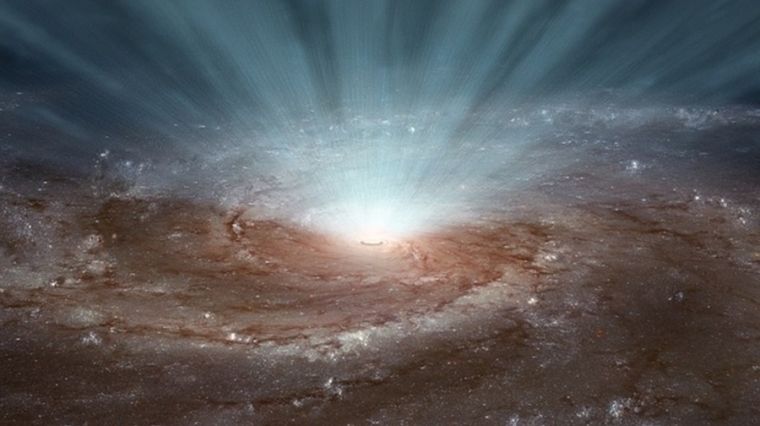Scientists see partial proof of God with discovery of portal into dark, parallel universe

Quantum physicists believe they have found at least a partial scientific proof of God following the discovery of a quantum portal into a separate, dark and parallel universe.
Dr. Gerald Schroeder, a Torah scholar with a PHD in physics from MIT, told Breaking Israel News that he believes the discovery reveals the "natural aspect of God" as described in Genesis.
"Quantum physics has discovered that we can create the universe from nothing, provided we have the forces of nature," he explained, pointing out that this finding actually supports Biblical creation.
"The laws of nature aren't physical: they act on the physical. They predate the universe," Schroeder said.
"That is the Biblical definition of God," he stressed. "Science has discovered Elohim, the natural aspect of God described in Genesis. The one crucial thing we need to add is that which created the universe is still active in the universe."
Scientists at the Center for Theoretical Physics of the Universe, which is part of the Institute for Basic Science (IBS) in Daejeon, South Korea, earlier announced their apparent discovery of a portal into a dark and parallel, though not symmetrical, universe.
They found the portal through a newly discovered subatomic particle called a heavy quark. Scientists believe that heavy quarks have a "dark charge" that allows them to act as a bridge or portal between the dark universe and our own observable universe.
Quantum physicists theorise that in the early days of the universe, visible particles were formed along with hidden, or dark particles, which are beyond the limits of scientific observation.
Although they cannot be observed, the effects of these dark particles on our universe are immense. This is because physicists believe that roughly 68 percent of the universe is dark energy, with dark matter constituting about 27 percent.
What man-made instruments can observe constitutes less than 5 percent of the universe, they say.
Schroeder said the finding proves that human senses are simply unable to see and discover everything in the universe. This means that some aspects of life are simply unknowable, and thus divine, he said.
"Dark matter is proof that there are dimensions we interact with but we cannot sense. These forces, which are dark to science, are a part of the creative universe. This has brought science to a partial definition of God," Schroeder said.











